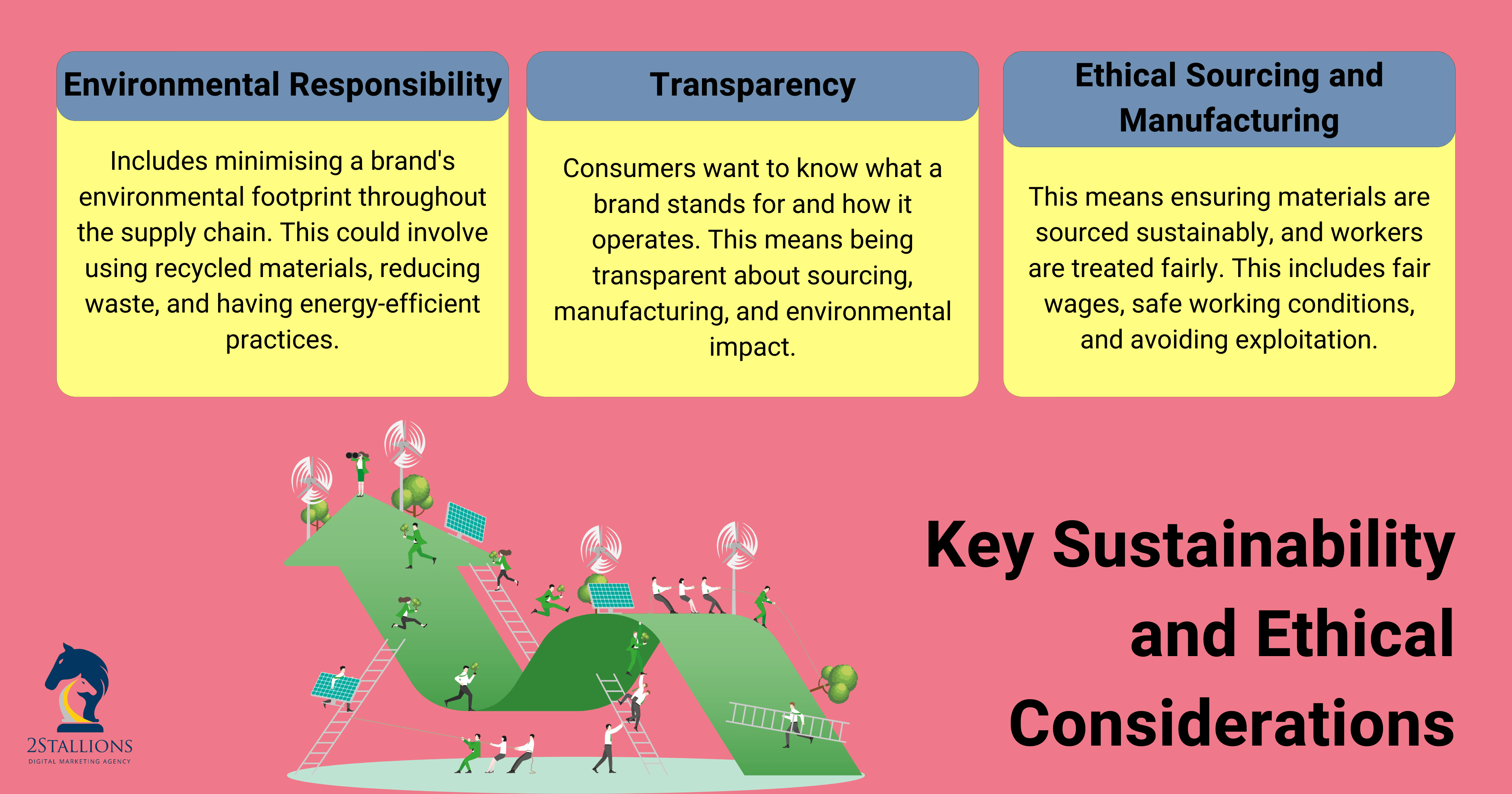SHARE

In today’s rapidly evolving digital landscape, the world of branding is undergoing a seismic shift. As we look towards the future of branding in 2024 and beyond, it is essential to understand the key trends and developments shaping this dynamic industry. From the evolution of traditional branding methods to the impact of new technologies and the rise of sustainability, we explore the exciting possibilities that lie ahead.

Understanding The Evolution Of Branding
The concept of branding has come a long way since its inception. Traditionally, branding involves creating a memorable name, logo, or symbol associated with a product or service. However, in recent years, we have witnessed a shift from traditional to digital branding.
Branding has always been a powerful tool for businesses to differentiate themselves from competitors. In the early days, companies relied on simple yet effective branding techniques to establish their presence in the market. A catchy jingle, a well-designed logo, or a memorable tagline could make all the difference in capturing consumers’ attention.
With the rise of the internet and social media, companies now have access to a global audience like never before. The digital revolution has transformed how brands communicate and engage with customers, allowing for more personalised interactions and targeted marketing campaigns.
Today, branding goes beyond just a name and a logo. It encompasses the entire customer experience, from when a consumer first encounters a brand to their ongoing relationship. Brands are expected to deliver value, build trust, and create emotional connections with customers.
The Shift From Traditional To Digital Branding
Traditional branding methods, such as print advertising and television commercials, are slowly being replaced by digital alternatives. Companies are embracing online platforms, social media channels, and influencer collaborations to reach their target audience effectively.
One of the advantages of digital branding is the ability to measure and track the effectiveness of marketing campaigns. Unlike traditional methods, digital platforms provide real-time data and analytics, allowing brands to make data-driven decisions and optimise their strategies accordingly.
By leveraging the power of digital, brands can deliver their message directly to consumers more cost-effectively and measurably. Online advertising allows for precise targeting, reaching the right people at the right time, and providing valuable insights into consumer behaviour.
Moreover, digital branding offers interactivity that traditional methods cannot match. Brands can engage with their audience through interactive content, gamification, and user-generated campaigns. This creates a more engaging experience for consumers and helps build brand loyalty and advocacy.
The Role Of Technology In Shaping Branding
Technology continues to play a crucial role in shaping the future of branding. From AI-powered chatbots that provide instant customer support to virtual reality experiences that immerse consumers in a brand’s universe, technology is revolutionising how brands engage with their audience.
Artificial intelligence, for example, has the potential to transform customer service by providing personalised recommendations and assistance. Chatbots can now understand and respond to customer queries, providing a seamless and efficient support experience.
Furthermore, emerging technologies like augmented reality (AR) and voice-activated devices offer exciting opportunities for brands to create immersive and interactive experiences. AR allows consumers to visualise products in their environment before purchasing. At the same time, voice-activated devices enable hands-free interaction with brands.
These cutting-edge technologies enable consumers to interact with brands on a whole new level, providing a more engaging and memorable experience. Brands that embrace technology and incorporate it into their branding strategies will likely stay ahead of the curve and capture the attention of tech-savvy consumers.

The Impact of Social Media on Future Branding
In recent years, social media has become a powerful tool for brands to connect with their audience. Platforms like Instagram, Facebook, and Twitter have transformed how consumers discover, engage with, and purchase products.
The Rise of Influencer Marketing
Influencer marketing has revolutionised brand promotion in the digital age. Influencers with a solid social media following and the ability to influence consumer behaviour have become powerful brand advocates.
By partnering with influencers, brands can reach their target audience in a more authentic and relatable way. Influencer collaborations allow for creative storytelling and engaging content that resonates with consumers.
The Power Of User-generated Content
In the era of social media, user-generated content (UGC) has become a cornerstone of successful branding. UGC refers to content consumers create, such as reviews, testimonials, and social media posts.
Brands can leverage the power of UGC by encouraging their customers to share their experiences and opinions. By showcasing real-life stories and experiences, brands can build trust and authenticity, engaging their audience more meaningfully.

The Role Of Artificial Intelligence In Branding
Artificial intelligence (AI) is another major trend shaping the future of branding. AI-driven technologies are revolutionising various aspects of branding, from predictive analytics to personalised experiences.
Predictive Analytics And Branding Strategies
With the help of AI, brands can analyse vast amounts of data to gain valuable insights into consumer behaviour and preferences. Predictive analytics allows brands to anticipate customer needs and deliver tailored experiences, ultimately driving brand loyalty and customer satisfaction.
Ai-driven Personalisation In Branding
Personalisation is key in today’s competitive market. AI empowers brands to deliver highly personalised experiences by leveraging data to create customised recommendations, content, and offers.
From targeted email campaigns to dynamic website content, AI-driven personalisation enables brands to deliver the right message to customers at the right time, enhancing brand relevance and engagement.

Sustainability And Ethical Considerations In Branding
With increasing consumer awareness and environmental concerns, sustainability and ethical considerations are paramount in branding strategies.
The Importance Of Brand Transparency
Consumers today value transparency and authenticity. Brands that embrace transparency, openly sharing information about their sourcing, production processes, and environmental impact, can earn the trust and loyalty of their customers.
The Rise Of eco-conscious Branding
Eco-conscious branding has gained significant momentum in recent years. Consumers increasingly seek eco-friendly and sustainable products and are willing to support brands that align with their values.
By adopting sustainable practices, reducing waste, and promoting eco-friendly initiatives, brands can attract environmentally conscious consumers and differentiate themselves in a crowded marketplace.
The Future Of Branding: Critical Predictions For 2024 And Beyond
As we look ahead, several key trends and predictions shape the future of branding.
The Growing Importance Of Experiential Branding
Brands will increasingly focus on creating memorable and immersive experiences for their customers. Through live events, virtual reality, or interactive installations, experiential branding allows brands to forge deeper connections with their audience and leave a lasting impression.
The Shift Towards Purpose-driven Branding
Consumers are gravitating towards purpose-driven brands that stand for something beyond profit. Brands that align with social causes and champion sustainability, inclusivity, and equality will resonate with increasingly conscientious consumers.
In conclusion, the future of branding in 2024 and beyond is promising and exciting. From the shift towards digital branding and the impact of social media to the role of AI and sustainability considerations, brands must adapt and embrace these trends to stay ahead in a rapidly evolving landscape. By understanding the evolving consumer preferences and leveraging emerging technologies, brands can create meaningful and engaging experiences that capture the hearts and minds of their audience. Let us embrace this new era of branding and unlock limitless possibilities for the future.
Frequently Asked Questions About The Future of Branding
What Do You See As The Future Of Branding?
Branding in the future will likely be increasingly focused on authenticity, personalisation, and sustainability. With technological advancements, brands will have more opportunities to engage with consumers on a deeper level, tailoring experiences and messaging to individual preferences. Moreover, as consumers become more socially and environmentally conscious, brands must prioritise ethical practices and demonstrate a commitment to sustainability to maintain relevance and trust.
How To Build A Brand In 2024?
Building a brand in 2024 requires a multi-faceted approach that leverages both traditional and digital strategies. Here are some critical steps:
- Define your brand’s identity and values clearly.
- Understand your target audience and their needs.
- Create compelling and authentic brand storytelling across various platforms.
- Use social media and digital marketing channels to reach and engage your audience.
- Prioritise customer experience and satisfaction to build loyalty and advocacy.
- Embrace innovation and adaptability to stay relevant in a rapidly changing market.
- Incorporate sustainability and ethical practices into your brand’s ethos.
How Will The Roles Of Brands Change In The Future?
In the future, brands will likely play more diverse and dynamic roles in consumers’ lives. Beyond offering products or services, brands will increasingly serve as inspiration, education, and community-building sources. With the rise of social media and digital platforms, brands can interact with consumers in real time, fostering deeper connections and loyalty. Additionally, as societal values evolve, brands will be expected to take more proactive stances on social and environmental issues, contributing to positive change and shaping cultural narratives.
How Has Branding Changed Over The Years?
Over the years, branding has evolved significantly due to technological advancements, shifting consumer behaviours, and cultural changes. Some fundamental changes include:
- The rise of digital marketing and social media has transformed how brands communicate and engage with consumers.
- There’s been a shift towards authenticity and transparency, with consumers demanding more genuine brand connections and experiences.
- Personalisation has become increasingly important, with brands leveraging data and technology to tailor their offerings to individual preferences.
- Sustainability and ethical practices have emerged as critical consumer considerations, leading brands to prioritise responsible business practices and environmental stewardship.
- Branding has expanded beyond products to encompass experiences, values, and emotional connections, with brands seeking to create holistic brand ecosystems that resonate with consumers on multiple levels.






